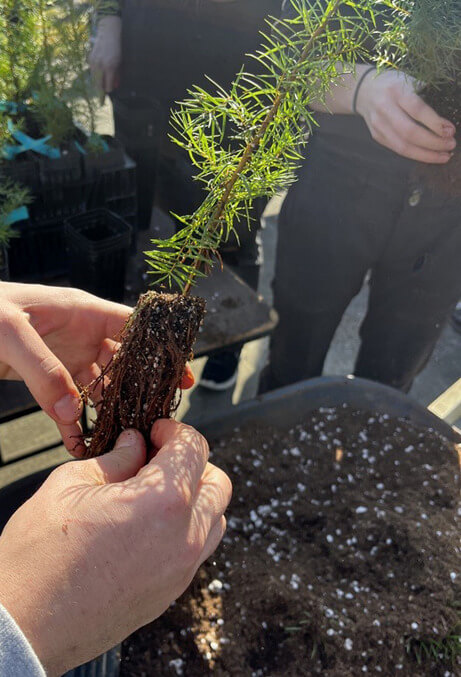Five Colleges Are Collaborating in effort to enhance urban forests
May 31, 2024
Tree canopies in several urban areas across the state should increase and residents in underserved communities will gain knowledge about stewardship of natural resources as part of a five-year project being led by Washington State University.
The project, supported by a nearly $1.8 million Inflation Reduction Act grant from the USDA Forest Service and Community Forest Program, is designed to increase resilience amid a changing climate. Complementing existing curricula, WSU will work with community college faculty to engage their students through tree equity lessons and labs, campus tree giveaways, and planting events tailored to each school’s geographical location.
WSU is collaborating with faculty and students at four community colleges: Spokane Community College, Highline Community College in Des Moines, Whatcom Community College in Bellingham, and Tacoma Community College. Together, they will work to “create thriving urban forests in neighborhoods near those schools.”
“Heat waves disproportionately affect communities without any trees, and our work is geared toward increasing canopy in those disadvantaged areas,” said Joey Hulbert, a post-doctoral research associate at the WSU Puyallup Research & Extension Center and the project’s principal investigator.
According to a news release from WSU, partners at the U.S. Forest Service hope the project will result in a more diverse and skilled workforce while inspiring colleges throughout the country to embrace similar approaches.
“Our team is excited to support the work of Dr. Hulbert and partner faculty to nurture the next generation of urban forestry professions, stated Alyssa Chen, an urban and community forestry program specialist with USFS.
Students will apply what they’ve learned during coursework, internships, and other activities, and return to their communities with knowledge that can benefit their neighbors.
“Engaging students from these areas in relevant coursework and place-based opportunities not only benefits their education but also contributes to civic engagement and workforce development in communities where tree canopy is thin and the need is vast,” said Chen.
The four community colleges are all located in census areas defined by the federal government’s Climate and Economic Justice Screening Tool as overburdened and underserved, making them especially vulnerable to heat waves and the public health crises that frequently follow, stated WSU in its news release.
By teaching stewardship of natural resources such as trees, creating an adaptable workforce and promoting environmental health in underserved communities, the project’s ultimate goal is to create a Resilient Washington that can readily bounce back from extreme weather.
“Resiliency means being comfortable in a changing climate, and heat waves are a huge part of that,” Hulbert said. “This is a great opportunity for WSU to create trained professionals, adding to a workforce that’s capable of helping our communities adapt to a hotter and drier world.”

